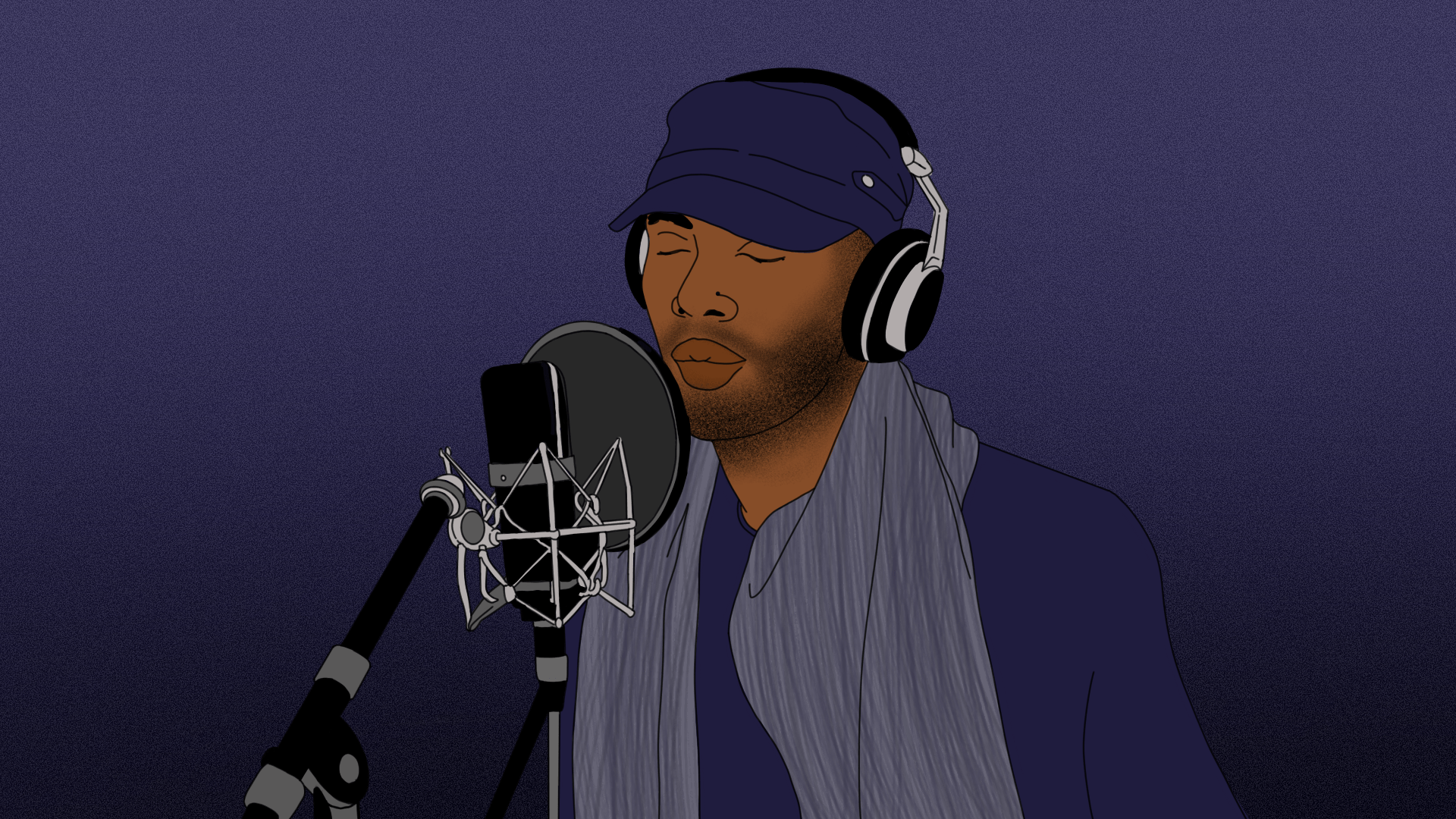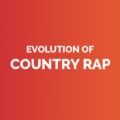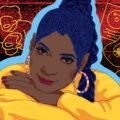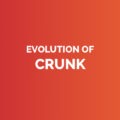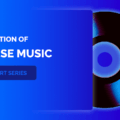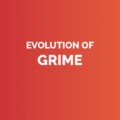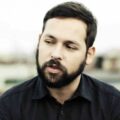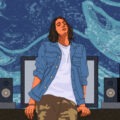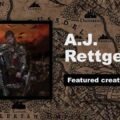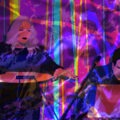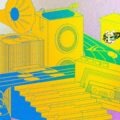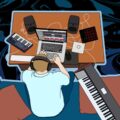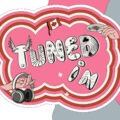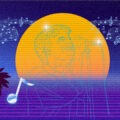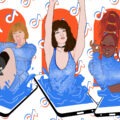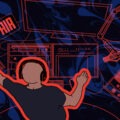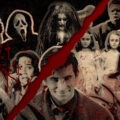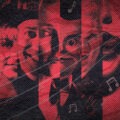With two EPs already in hand, pop crooner Michael Perry looks to break out of his musical comfort zone in 2021 with rock and punk-inspired new tracks dropping each month and an ongoing exploration of individuality, self-acceptance and love through music.
Follow Michael on Instagram / Facebook / Site Web / Twitter / YouTube / Spotify / Apple Music / Deezer / Tidal
Michael Perry 101: Cheat Sheet
Your role in the creation of your music is…
Singer, songwriter, beatmaker, engineer and producer
One piece of gear you can’t live without is…
Definitely my AT2020 condenser microphone… until I get my AKG420
Three favourite albums are…
Toxicity by System of a Down, Losing My Religion by Kirk Franklin, Daydream by Mariah Carey
Least favourite song by your favourite artist is…
“Did I Do That?” by Mariah Carey (DIFFICULT A F to figure out!)
Best way to get in the zone.
Make it difficult not to!
If I wasn’t a musician, I’d be…
Lost
Describe your music in three words:
Me Blooming Outward
Michael Perry has a clear mission statement: to make music that encourages listeners to raise their self-worth and see their uniqueness not as a weakness but as a superpower. He calls this the Queer Gospel, and across seven EPs, the Montreal-born singer-songwriter has powered this message of pride and individuality by drawing on R&B, pop, and, of course, gospel influences.
Since co-penning the viral “Chez Maxi et Cie.” while working at the popular Quebec supermarket chain, Perry’s music has gone on to reach audiences across the globe and has placed the pop singer-songwriter under the spotlights of New York’s Carnegie Hall and Fierté Montreal’s TD stage.
Perry’s latest offering, Advancing Dreams through Brokenness, is his most confessional and autobiographical music yet. The record features guest appearances and writing contributions from Rachel Mendelson and fellow RAC luminaries Noah Mendelson and Joey Langlois. The EP is his second release in 2021 and marks the beginning of an ambitious release schedule that promises to break new ground for an artist who is continually redefining his approach to music creation.
In-person, Michael Perry is affable, well-spoken (he’s attended the prestigious Antigua Grammar School and teaches CÉGEP-level English), and, as with his music, unafraid to dive deeper within himself in answering my questions. Following the release of his newest EP, I connect remotely with Michael Perry from his current home in Madrid to discuss, among other topics: writing a viral jingle, his fascination with Mariah Carey (he owns no less than five copies of The Emancipation of Mimi), and finding self-acceptance and healing through music.
RAC: Hey, Michael. Thanks for taking the time to chat with us. How about we start with some introductions. Tell us a bit about where you come from and your upbringing.
MICHAEL: I am a singer, songwriter, beatmaker, engineer and producer. I have been singing since I was 11 months old–as per my grandmother– and I first remember having begun writing and recording at the age of seven. I was born in Montréal, but soon after moved to Antigua, W.I. My family is predominantly from that island, but we live all over the world – that’s the diaspora for ya! I was raised in a house that always had music, so that was a blessing! I sang at home, at church, at school and anywhere else I could. I joined the school choir, took music classes and even performed the national anthem at my high school graduation. I started recording original lyrics and melodies over Pop instrumentals such as Usher’s “Yeah!” and Eminem’s “Lose Yourself”, and in my final year of high school, I got a part-time job at Maxi et Cie., where I would use my time pushing carts or stocking shelves to write songs and practice singing.
RAC: Before we dive into your influences, let’s talk a little bit more about that. Tell me about the viral Maxi jingle and how that came about.
MICHAEL: I am most known for the song and video “Chez Maxi et Cie.” that I performed with DJ Iron Ben. I kept that job until the end of my first semester of Grad school, and a year later, the song went viral. First, I was a little horrified, then frustrated that people would think that is all I could do, then indifferent. Now, I’m happy it did. I know that that song is not representative of my complete artistic capabilities–my music goes way beyond that and the jingle genre. I am grateful for the attention that song garnered.
RAC: Who were your earliest musical influences? How have those influences changed over the years?
MICHAEL: My earliest musical influence was my grandmother and whichever Gospel or Calypso artist she would play on the radio at the time. As I grew older, I discovered Christina Aguilera, Britney Spears, Aaliyah, Hoku, TLC, Samantha Mumba, Janet Jackson and whoever was on the Disney Channel.
But it was in November 2003 when I had to learn a Mariah Carey song for a high school Christmas concert that I began taking my writing seriously. I’d heard some of her music prior and was already impressed. I thought she was just fabulous, and I remember running home from school to complete my homework so that I could turn on BET and hope to catch her “Boy, I Need You” music video. Reading the liner notes to her first Christmas album and those of her others, I uncovered a female singer who was involved in every aspect, in every stage, of the music creation process. I have five copies of The Emancipation of Mimi. Now, I like listening to almost anything from Ariana Grande to System of a Down to Lady Gaga, whose style I spent 2010 to 2014 trying to emulate.
RAC: How does the music you listen to now influence your work?
MICHAEL: Growing up listening to pop and R&B divas such as Ms. Carey and Ms. Dion, it was hard to sing a note without melisma; so, my singing teacher challenged me to become a lyric singer – one who sings the lines without unnecessary note bends. I also used to listen to lots of Destiny’s Child, and so on my earliest recordings, almost every line was harmonized. I have an early recording of a 2004 song I wrote which features me singing three-part harmony on nearly every line [Laughs].
I used to actively try to imitate the music I liked and forced myself into the boxes those artists seemed to fill. I think it was in 2018 that I noticed myself trying less to fit into some form or genre. I went through a lot of emotional challenges and listened to a lot of India.Arie, which led me to actively write my true feelings into my music without trying to appease anyone else. I used to say that I was a pop/R&B artist, but I no longer have delusions of being a straight-up anything artist.
Lately, I’ve been working mainly with Max Ovenden, a guitarist and songwriter who generally works on punk music. I never expected that I’d be writing a heavy rock song with him, but I found myself leaning more and more into what I’d considered his world. He challenged me to sing on the track, and within less than a day, I’d recorded my vocal takes and had a whole lot of fun doing it.
RAC: When did you first realize that music was something that you wanted to pursue?
MICHAEL: It was always my passion and, though I went through the motions of changing my future career from “pilot” to “preacher” to “doctor” – the most respected professions that surrounded me – “musician” was always there within me. I’d been performing since I could put together a decent sentence – earlier even. There was never any doubt I’d be doing this. But it was when I watched the 48th Annual Grammys that I knew that I would perform my own songs come hell or high water and that I would do so for more than just my friends and family.
RAC: Can you walk me through your creative process?
MICHAEL: My creative process could start at any moment in time, even when I am sleeping. Just a week ago, I awoke with lyrics and melody from my dream. Some of my songs have begun that way: “Biggest Star on Earth”, for example. I’ll rush to get my phone, open the voice memos app, and record what I remember from the dream. Other times, I hop on a video call with Max, and we start writing a song while we have a conversation. Sometimes, I have an inkling of an idea, and I open my DAW and program some chords, record some low-quality vocals, move to something else, and continue working on it at a later date, or I send it off to one of my collaborators to see if the idea sparks anything in them. I did that when I was at RAC. In the past, I used to “write for” my favourite artists. I’d say something like, “This is a Kesha demo!” Now, I just start writing a song with the idea that I will be the artist.
RAC: Speaking of RAC, what is the most significant impact your education in music production has brought to your work?
MICHAEL: In 2018, I was tired of being frustrated that my recordings sounded nowhere near radio-ready, so I enrolled at the Recording Arts Canada’s Montréal Campus and got to work. Having the technical capabilities necessary for my craft means I no longer work for hours on a mix only to feel utter defeat when I listen to it in a playlist of the artists whose recordings I admire. I can be critical of my work while having tools to improve on it. If I don’t have the tools, I know where to look or who to ask. In my classes, I met collaborators and at school benefited from performance opportunities offered. After a year of consistent theoretical and hands-on studies, I am now a certified audio technician. Because of that, I have more autonomy over my sound and am able to help record and produce other artists.
RAC: There an emotional weight to this new EP. There is a sense that you or the narrator of these songs is working through some stuff. Can you talk about the inspiration behind this project? Was there anything different about the creation of this music?
MICHAEL: The messages found on Advancing Dreams through Brokenness are messages I hope will touch everyone who listens. During the pandemic, I had a lot of time to think about the power music has had in my life. I recognized even more how much I depended on music to get me through life. I decided to use the music I was making to work through the loneliness I’d felt for a long time. The album cover is a photo of me at age 15 because, while I smiled for the photo, I was very sad and was living through emotional turmoil I thought no one else went through, only to find out later that I was not alone in my feelings of hopelessness.
It was the music I listened to and the thought of making music that kept me from harming myself in ways we can’t possibly come back from. Later in my teens, and long before I firmly recognized my queerness and uniqueness as a strength, I wanted to leave this world. It was when a cousin I barely knew showed me love and acceptance that even some of my closest relatives couldn’t that I realized that my world doesn’t have to centre around those who hated me.
As I wrote and worked on the album, I was singing to myself – “It’s time to forgive yourself the mistakes you’ve made.” “You’re so Broken,” for example, had been revised so many times since Rachel and Noah Mendelson and I worked on the chorus for the first time in their garage. When I wrote the opening lines – “you’re so broken; I don’t know what to do” – I hadn’t a clue that I was talking to myself. I also don’t think I would’ve admitted that to myself. It was almost ¾ of a year later, during lockdown, when I started working on the verses, that I truly realized that I was writing to myself.
Probably my favourite track on the album, “Not Afraid Anymore,” is literally me saying that after all I’ve been through, I have grown bolder. I may not be devoid of all fear, but I am not afraid to move forward with all I have learned and that my consciousness can be the cure in moments when my mind begins to attack itself with crippling yet irrational fears. The song is my self-declaration– to myself: after years of low self-esteem, I live and make music to remind myself never to lower uniqueness from superpower to weakness status, and I’m not afraid to say and do so.
RAC: Before we conclude, who would say has had the most impact on your artistic journey thus far? Anybody you want to give a shoutout to?
MICHAEL: There are so many people! My grandmother, Ms. Catherine Lloyd–Mommy Kitty– who first recognized my inclination toward music, was my first singing teacher and my first booker. She booked me in concerts across Antigua’s Gray’s Green area. My mother, Rhonda James-Perry, who bought me my first DAW and made sure that when she surprised me with my first computer, it had “music things” incorporated. My singing teachers Alex Kirim, Venita Morrisson and Amaro González and Cheryl Porter deserve thanks!
Shout out to RAC for offering their studios to me during which I wrote recorded “Sex Don’t Solve Problems” and “So High.” Furthermore, RAC offered me an invaluable internship at their Montréal campus! Shoutout to Joey Langlois, Nick Gastis, and Noah Mendelson for the time they spent writing with me.
Thanks to Max Ovenden and Philip Molyneux for the time they spend writing with me. Thanks to Natasha Jane Kennedy and Anne Maabjerg for trusting in my writing and recording capabilities. Merci à Simon Villain et Steven L’Noch pour leurs oreilles pis pour leur patience! Thanks, Gideon Yellin, for recording guitar and to the Firing Squad for performing live with me!
RAC: What’s next for you in 2021? Any goals you’d like to achieve?
MICHAEL: I will continue to make music that has the potential to raise people’s understanding of their self-worth so that we all see our uniqueness not as a weakness but as a superpower. I’m constantly finding new ways to approach making music. I want to expand my pop-rock and punk performance capabilities, and so for the rest of the year, I will release one single in that style every third Friday of the month. I’m currently working on an EP tentatively titled Songs About Sex. Max Ovenden and I are producing a single we’d written for Danish singer Anne Maabjerg. That song, “Papí,” will be released in late spring.
I’m gonna keep educating myself. My collaborators challenge me to evolve as a writer, technician and singer. We come from different cultures, come from varying music education backgrounds. We learn from each other and push each other out of our comfort zones. So gimme more o’ dat! [Laughs] I love Christmas; so, since January, I’ve been working on new Christmas music. I am still working toward winning the Grammy Award for Best New Artist.
In “Biggest Star on Earth,” I write, “I’m gonna be the biggest star on Earth.” But I think the lines written by my co-writer Hania Kassouar are more fitting: “I’m gonna be the best me I can be.”
Illustration by Malaika Astorga
